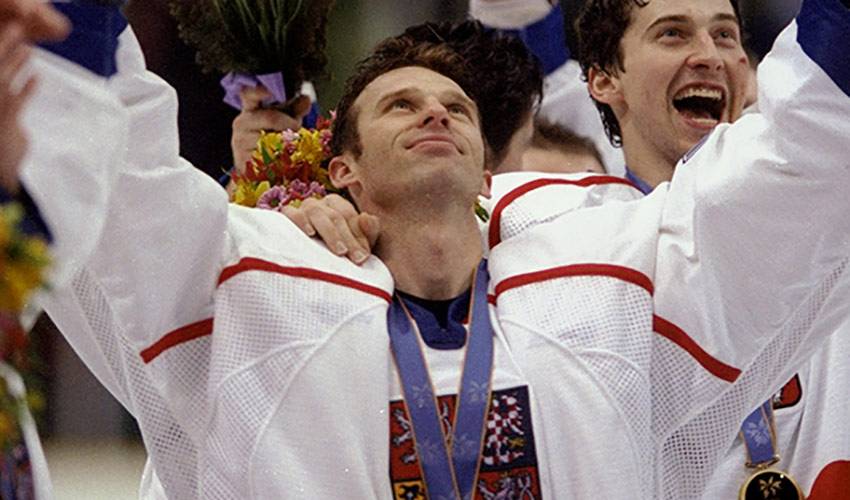I think it's more in terms of preparedness rather than experience. There have been various articles regarding Canada's failure in 1998 and the players and management have talked various times about how the shootout was something that they barely practiced or considered, in a way that wouldn't be true ever again. As part of the hockey culture in Canada it wouldn't have been something that those guys grew up practicing or had even considered. It also gets a lot of attention for being, at the time and still today, the biggest shootout that Canada had ever participated in and just how bad Canada's shooters looked.
None of that means that Canada was bound to lose or that the Czechs had some huge advantage in the shootout. In terms of hockey culture, Canada losing a best on best tournament in a shootout, of all things, was something that people fixated on more than people not there at the time would expect. It's faded away a lot since the NHL adopted the shootout but most fans in Canada really, really hated shootouts regardless of the outcome.
I agree preparations is the key word here. Team Canada might’ve made a few odd choices and failed to prepare properly for the possibility of a shootout, and I think it’s very possible the Czechs had planned for it much more intently considering their defensive style. There are parallels to soccer here, where less talented squads are likely to adopt a defensive system, practice set pieces and penalty kicks to a much greater extent, and look more comfortable running out the clock than the favored team, as they are aware their chances to advance increases with the randomness of penalty shootouts rather than trying to force a goal in regulation.
Similarly to the DPE in hockey, and the low-scoring Nagano Olympics, that gradually informed rule changes in international hockey and professional leagues alike, soccer had a trend of more teams going in the direction of, and finding success with increasingly structured defensive and lead-protecting tactics, culminating in the abysmal, historically low-scoring 1990 World Cup in Italy where a ton of games ended in shootouts or with 1-0 scores, which informed several rule and format changes throughout the 90s.
Problem I have is it’s not the first time I’ve sensed the notion from some of hockey shootouts being something European, that it’s been part of “our game” since forever and that we enjoy games being decided with a gimmick, which is unfair as it’s just not true. Our leagues have playoffs, we play 20 minute overtime periods until someone scores a winner, and we wouldn’t want it any other way.
I wonder if it’s due to the prevalence of shootouts in soccer that some North Americans have figured that European hockey fans supposedly love them or that it’s the reason they snuck into hockey, because I don’t think I’ve ever heard a Swede or any other hockey fan say they enjoy games being decided in a shootout. But I suppose we don’t whine about the 1994 gold not feeling real, on the other hand: it’s unfortunately the format. In retrospect, I don’t value the gold as highly for reasons including the fact it was decided in a shootout, but also because it wasn’t a best-on-best. Had it not been for that move making Forsberg a household name, I think the historical Olympic success would have been soon-forgotten once Turin happened.
What a weird rant against no one this became, sorry about that, but to close my argument against the strawmen:
The reasons they changed the format of international tournaments into quarterfinals, semis, etc, where you can’t have ties, I’d say is mostly due to the risks of unsportsmanlike manipulation within that format. In the 1991 WHC we saw an example of such, when the Soviets despite being just one goal down against Sweden in the final matchup never pulled their goalie, as Tikhonov preferred Sweden winning gold over Canada, which would have been the case had they forced the game into a draw.
And the reason we’re not allowed to have continuous overtime in IIHF competitions I would suspect is mainly due to broadcasting rights holders demanding games finish at some point.


